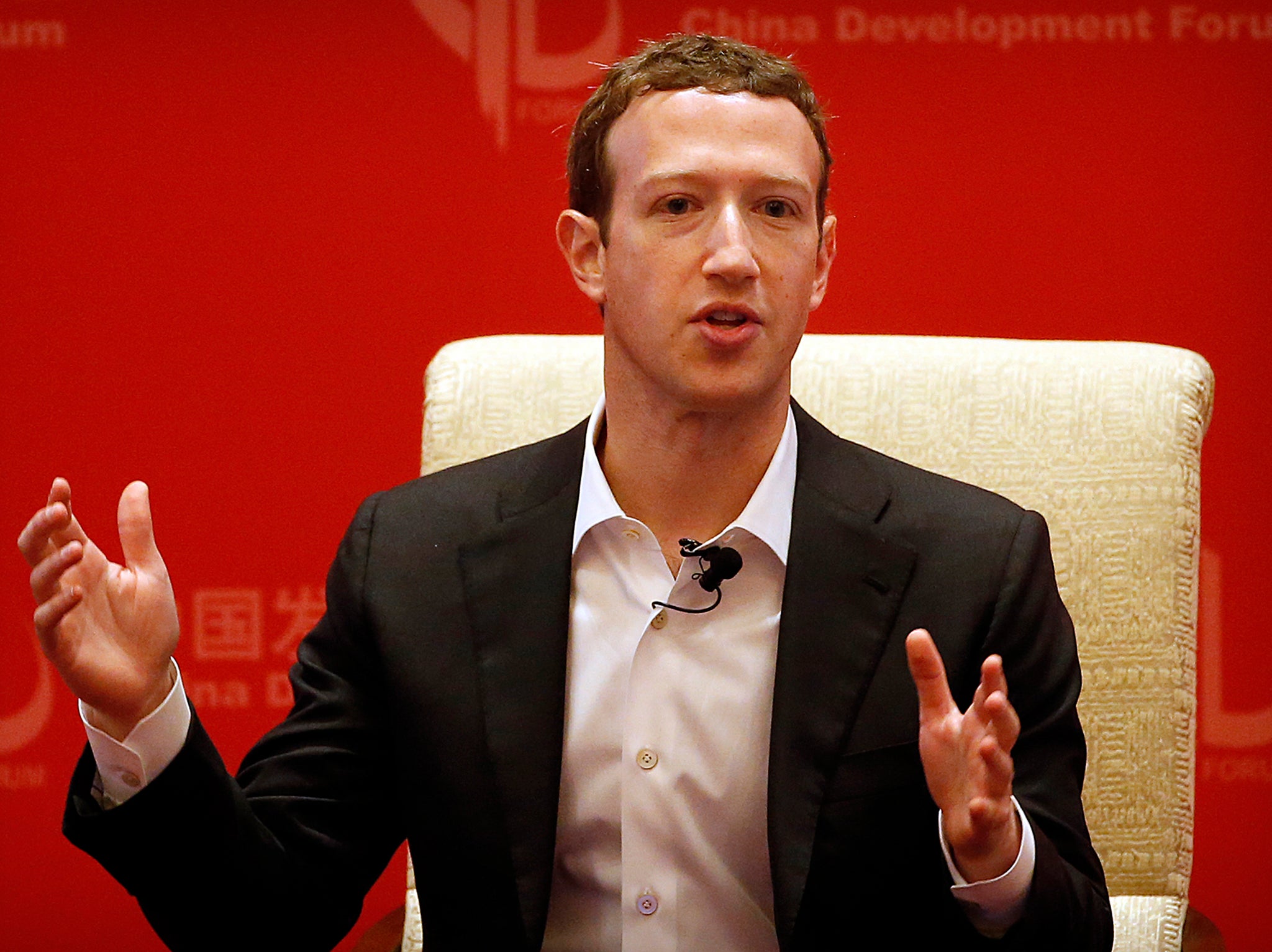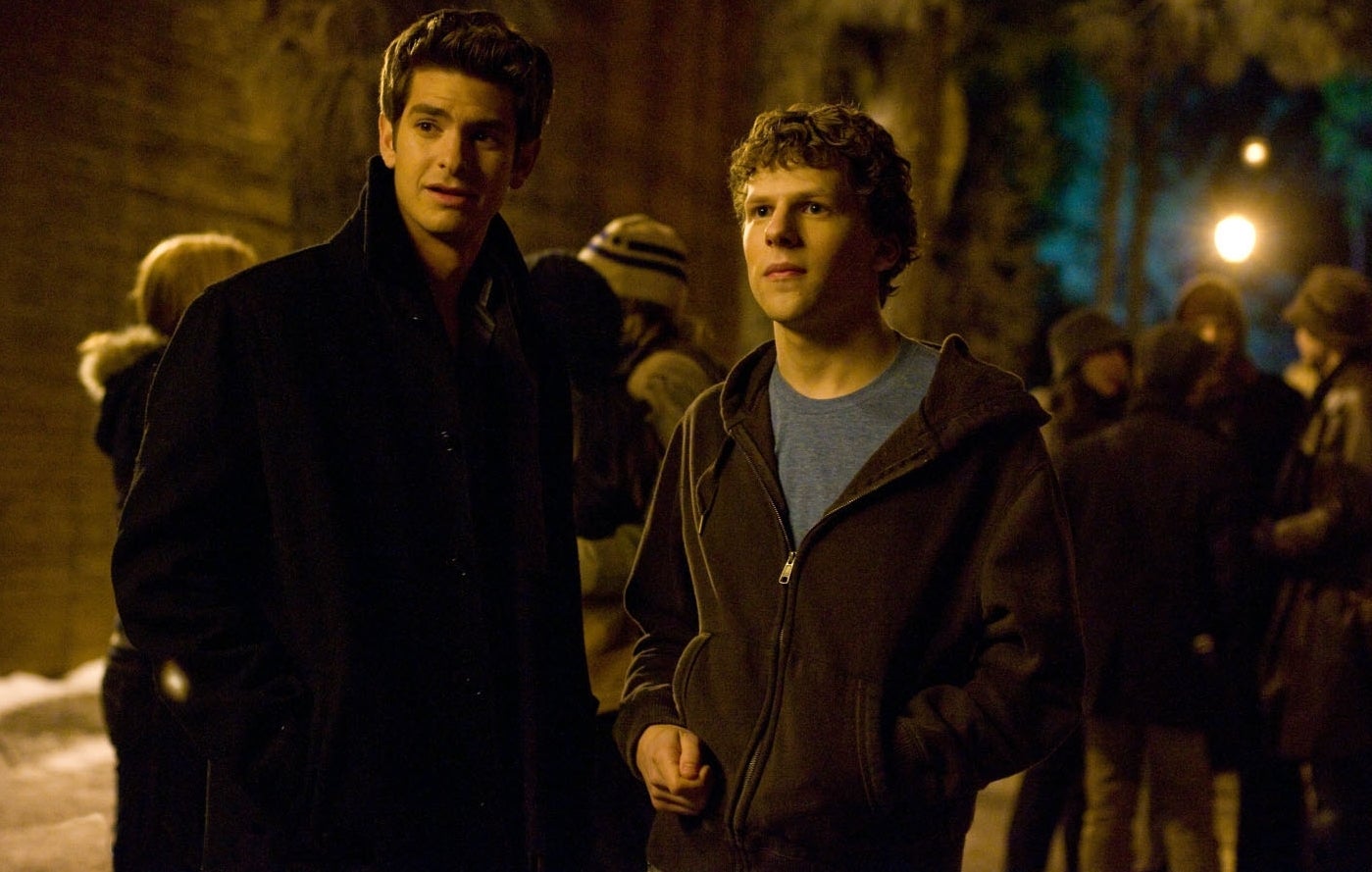Author of new Silicon Valley tell-all says this is what outsiders most often get wrong about Mark Zuckerberg
Antonio García Martínez says 'the claws will come out very suddenly'

Your support helps us to tell the story
From reproductive rights to climate change to Big Tech, The Independent is on the ground when the story is developing. Whether it's investigating the financials of Elon Musk's pro-Trump PAC or producing our latest documentary, 'The A Word', which shines a light on the American women fighting for reproductive rights, we know how important it is to parse out the facts from the messaging.
At such a critical moment in US history, we need reporters on the ground. Your donation allows us to keep sending journalists to speak to both sides of the story.
The Independent is trusted by Americans across the entire political spectrum. And unlike many other quality news outlets, we choose not to lock Americans out of our reporting and analysis with paywalls. We believe quality journalism should be available to everyone, paid for by those who can afford it.
Your support makes all the difference.To Antonio García Martínez, the former Facebook employee who wrote the new Silicon Valley tell-all “Chaos Monkeys,” the 2010 Academy Award-winning film “The Social Network” is a piece of pure fiction loosely inspired by actual events.
And though the film about the birth of Facebook, directed by David Fincher and written by Aaron Sorkin, came out six years ago, Martínez still thinks it's silly how it shaped so many Silicon Valley outsiders' view of its subject, Facebook founder and CEO Mark Zuckerberg.
Martínez spent 2011 to 2013 as the company's first ad-targeting product manager, where he would report to chief operating officer Sheryl Sandberg, and though he didn't work as closely with Zuckerberg as he did with Sandberg, he said he was able to get enough of a feel for who Zuckerberg was as a person.
While he has observed Zuckerberg grow into a more capable leader in the years since he left, Martínez thinks Zuckerberg is essentially the same person he met back in 2011, and he told Business Insider the public consistently got two main things wrong about Zuck.
He's not 'the sneaky, loser, little dips***' portrayed in 'The Social Network'

Jesse Eisenberg's portrayal of Zuckerberg as a conniving, backstabbing, severely socially awkward introvert made for great drama, but it's just not who Zuck is, Martínez said.
Sure, he added, Zuckerberg “doesn't exactly make a lot of eye contact,” isn't a great speaker, and gets unnaturally obsessed with certain details, but that's par for the course in Silicon Valley. It's not as if he's some sort of evil “Rain Man,” though.
“In fact, on the contrary, he's actually very alpha male and very dominant,” Martínez said. "He's the sort of guy who, if you challenge him that he can't do 100 push-ups, he'll bet a million dollars that he can, and he'll win."
Martínez said that Zuckerberg was not a blowhard who liked to throw his weight around but that "the claws will come out very suddenly", like the time when Martínez was in a meeting with him and Zuckerberg interrupted an overly long explanation with: "Just shut up and answer the question."
He truly believes in his mission
One of the reasons “Chaos Monkeys” is so interesting is that it tears apart the press-release-friendly optimism of Silicon Valley, but Martínez insists that when Zuckerberg talks about Facebook's mission to connect every person in the world, he's not putting a fake sheen over old-school capitalist greed.
“That really is his life's mission, and that's what he does,” Martínez said.
He called the subplot in “The Social Network” that showed Zuckerberg starting Facebook as a way to meet girls to be “utter bulls—-” not based on anything factual. In a Facebook question-and-answer session in 2014, Zuckerberg said he found this aspect of the movie to be especially hurtful because it undermined what he had dedicated his life to.
Martínez pointed to the recent news that Facebook successfully tested its drone project Aquila, which is meant to bring free high-speed internet to the poorest parts of the world. “He's not doing it for money, because like, the monetization in those countries is zero,” Martínez said.
When you read Martínez's book or talk to him, you'll see that he has plenty of gripes with Facebook and Silicon Valley in general, but at the end of the day he has plenty of respect for Zuckerberg.
Read more:
• This chart is easy to interpret: It says we're screwed
• How Uber became the world's most valuable startup
• These 4 things could trigger the next crisis in Europe
Read the original article on Business Insider UK. © 2016. Follow Business Insider UK on Twitter.
Join our commenting forum
Join thought-provoking conversations, follow other Independent readers and see their replies
Comments